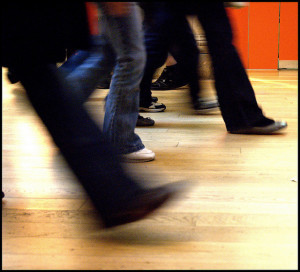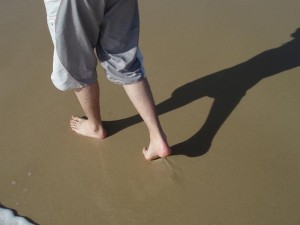Article Contributed By: Lindsay Ensor, free-lance writer for Addiction Hope
 Ritalin is the trade name for methylphenidate, a stimulant that is most commonly used to treat attention-deficit hyperactivity disorder (ADHD) in children and adults and but are also commonly used in the treatment of orthostatic tachycardia syndrome; additionally, this medication is commonly used to treat certain types of sleeping disorders such as Narcolepsy, which is a sleep disorder that causes excessive sleepiness and frequent daytime sleep attacks.
Ritalin is the trade name for methylphenidate, a stimulant that is most commonly used to treat attention-deficit hyperactivity disorder (ADHD) in children and adults and but are also commonly used in the treatment of orthostatic tachycardia syndrome; additionally, this medication is commonly used to treat certain types of sleeping disorders such as Narcolepsy, which is a sleep disorder that causes excessive sleepiness and frequent daytime sleep attacks.
It is listed as a controlled substance in the United States. Ritalin belongs to a distinct group of medications that are classified as psycho stimulants. Ritalin is also sometimes used for people with Chronic Fatigue Syndrome, to counter the extreme physical and mental fatigue that is associated with this condition.
Safe When Used as Prescribed
When used exactly as prescribed, Ritalin is considered safe, which is why it is so frequently prescribed for children. Although Ritalin increases the levels of dopamine in the brain, like other stimulants, the controlled dosage prevents the chemical changes from inducing the euphoric effects of illegal stimulants.
Abuse by Ritalin users with a legal prescription is not common; however, abuse by people who obtain the drug illegally for its ability to mimic the effects of cocaine at high doses is very common.
The most common abusers of Ritalin are teenagers and young adults who use the drug for its euphoric effects, to stay awake, and to increase concentration. Other abuses of the drug include taking it to lose weight or enhance performance.
Effects of Abuse are Similar to Cocaine
Abuse of Ritalin produces effects similar to cocaine; and just like cocaine or any other stimulant, that nice “up feeling” is inevitably followed by a “crash,” a feeling of fatigue, depression and decreased alertness. The user soon comes to know that this “crashed out” feeling can be relieved with the “help” of another pill that gets him back up again. And so it goes.
In addition to taking Ritalin in excessive dosages, Ritalin abusers often crush the pills and snort the powder or mix the powder with water and inject it. Tolerance increases, so one has to use more. This type of abuse produces results that are almost exactly the same as cocaine use.
Abusers who use Ritalin to stay awake typically take the drug orally, while abusers who are interested in getting “high” snort or inject it.
Side Effects of Ritalin Abuse
 In these larger doses, Ritalin can lead to convulsions, headaches and hallucinations. The powerful amphetamine-like substance can even lead to death, as in the many tragic cases of children who have died of heart attacks caused by damage linked to the drug. Basically, Ritalin abusers seek to turn the drug into a substitute for cocaine and experience the same addictive dangers.
In these larger doses, Ritalin can lead to convulsions, headaches and hallucinations. The powerful amphetamine-like substance can even lead to death, as in the many tragic cases of children who have died of heart attacks caused by damage linked to the drug. Basically, Ritalin abusers seek to turn the drug into a substitute for cocaine and experience the same addictive dangers.
A person who abuses Ritalin can develop not only a physiological dependence on the drug, but also a psychological dependence. Ritalin dependence can lead to drug cravings and panic attacks if the drug is not available. These panic attacks can cause psychotic episodes and heart problems.
It is important to distinguish between abusers who are misusing Ritalin for performance purposes, which may cause them to stray into dependency and addiction, and those who are specifically seeking a cocaine-like high.
Overdosing on Ritalin is Possible
People who abuse Ritalin can overdose on the drug. It is important to be able to recognize the symptoms of an overdose in friends and loved ones so you can arrange immediate treatment. A Ritalin overdose can cause psychosis, agitation, lethargy, and seizures.
If you suspect an overdose, contact a poison control center. A Ritalin overdose has the potential to cause an onset of sudden death, especially in people with underlying heart conditions, so immediate medical attention is advisable.
Withdrawal from Ritalin can result in a change in the person’s behavior that may be difficult for you to handle alone. Ritalin withdrawal symptoms are psychological, and suddenly stopping the drug can cause psychotic behavior, aggression, panic, extreme fatigue and depression, and even suicidal tendencies.
Facts and Figures
- In 2007, 3.8% of twelfth graders reported having used Ritalin without a prescription at least once in the past year.
- A major factor contributing to the abuse is the huge increase in the number of prescriptions written for Ritalin and other stimulants.
- In the US, the number of stimulant prescriptions soared from around 5 million in 1991 to nearly 35 million in 2007.
- In 2004, methylphenidate (Ritalin) was involved in an estimated 3,601 hospital emergency department visits, compared to 271 in 1990.
- From 1990 to 2000, 186 deaths in the US were linked to Ritalin. The risk is highest for those who snort large amounts of the drug.
- Since 1995, it has ranked on the Drug Enforcement Administration’s list of “most-stolen” medications.
- In 2007, 3.8% of twelfth graders reported having used Ritalin without a prescription at least once in the past year.
- A major factor contributing to the abuse is the huge increase in the number of prescriptions written for Ritalin and other stimulants.
- In the US, the number of stimulant prescriptions soared from around 5 million in 1991 to nearly 35 million in 2007.
- In 2004, methylphenidate (Ritalin) was involved in an estimated 3,601 hospital emergency department visits, compared to 271 in 1990.
- From 1990 to 2000, 186 deaths in the US were linked to Ritalin. The risk is highest for those who snort large amounts of the drug.
- Since 1995, it has ranked on the Drug Enforcement Administration’s list of “most-stolen” medications.
References:
- http://www.justice.gov/dea/index.shtml
- http://www.drugabuse.gov/
- http://www.washingtonpost.com/wpdyn/content/article/2006/02/24/AR2006022401773.html
About the Author:
Lindsay Ensor
BS Psychology and Counseling
Member of National Alliance on Mental Illness
Blogger www.healingandsurviving.com
